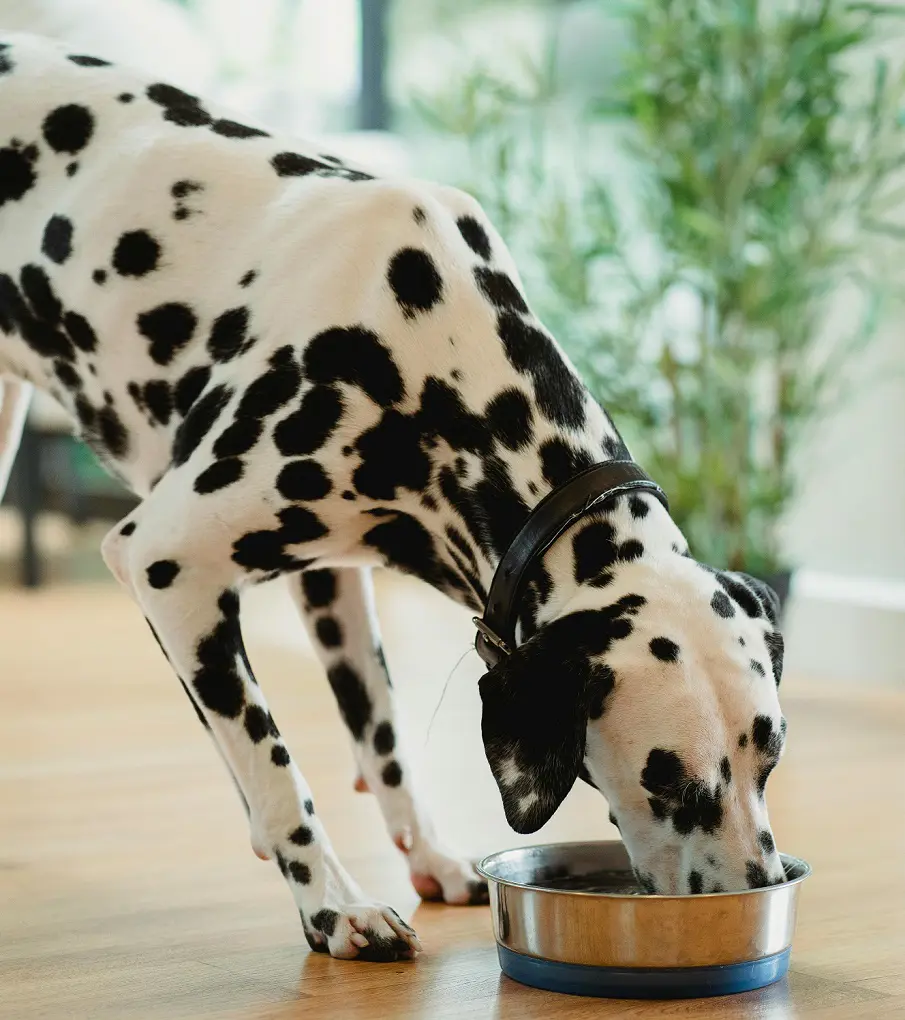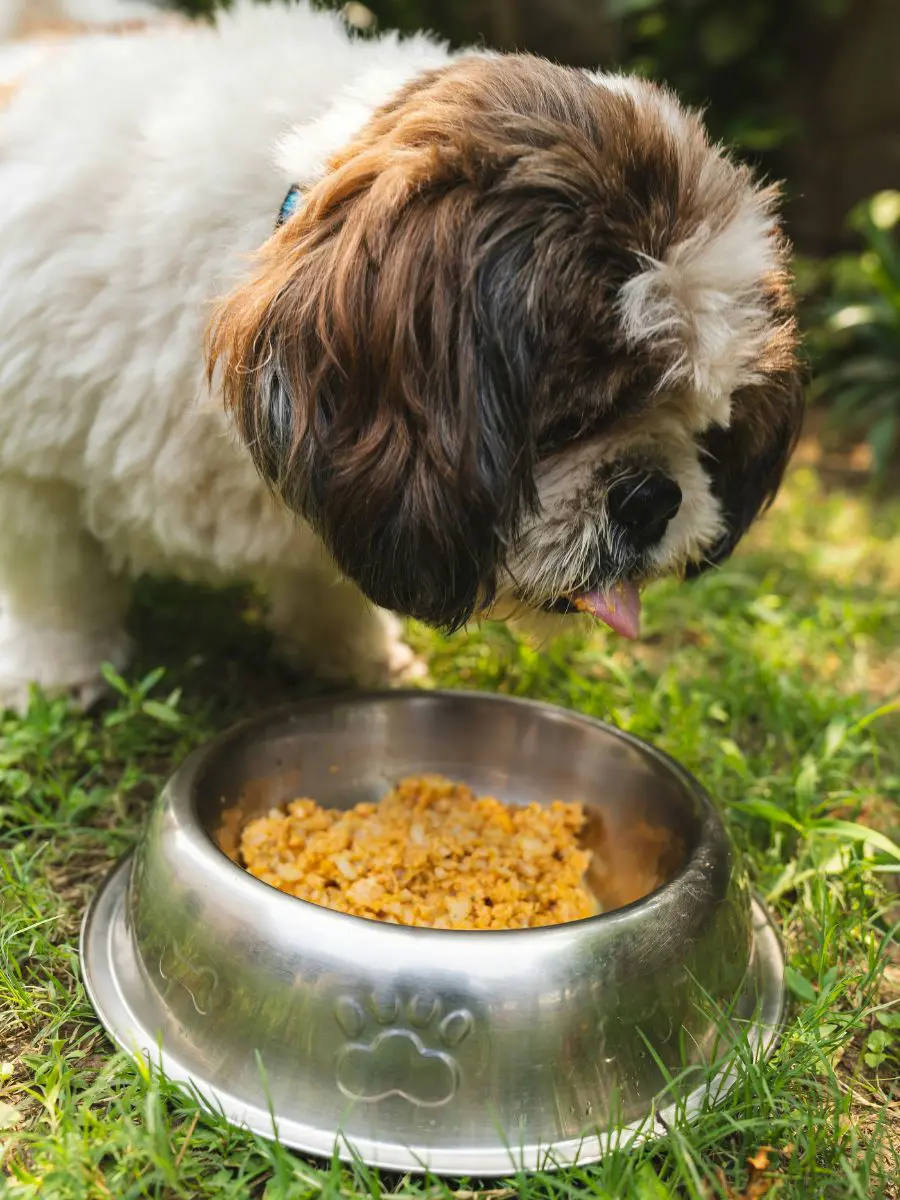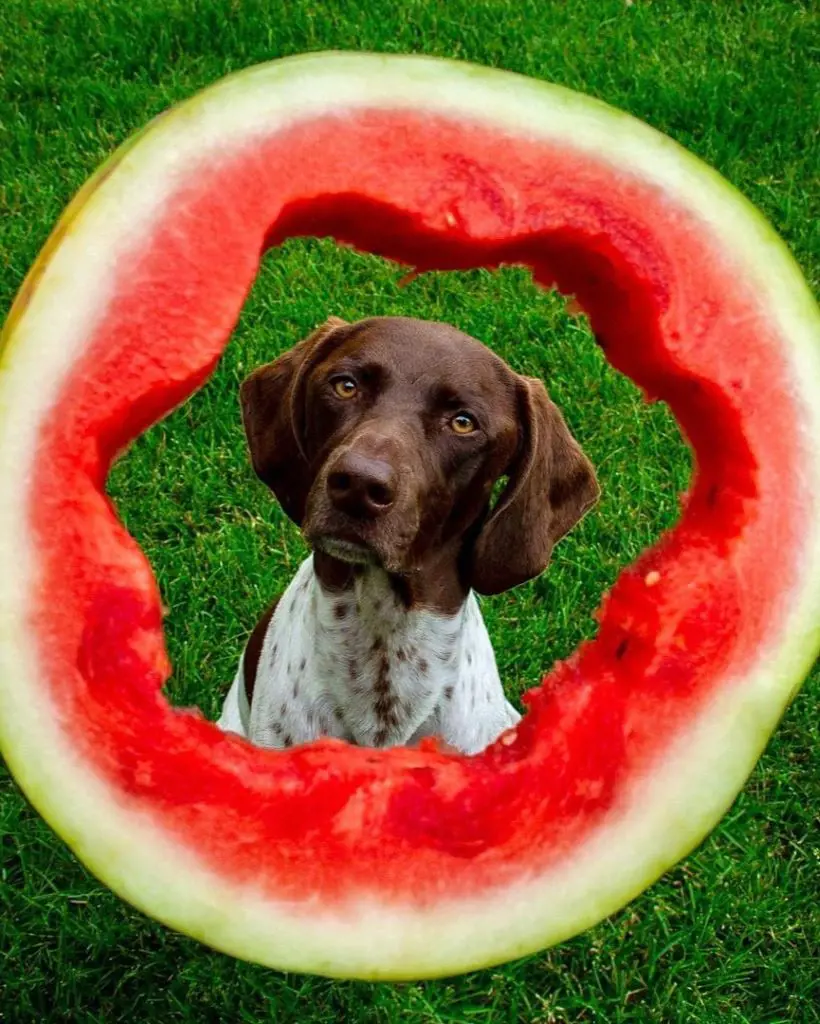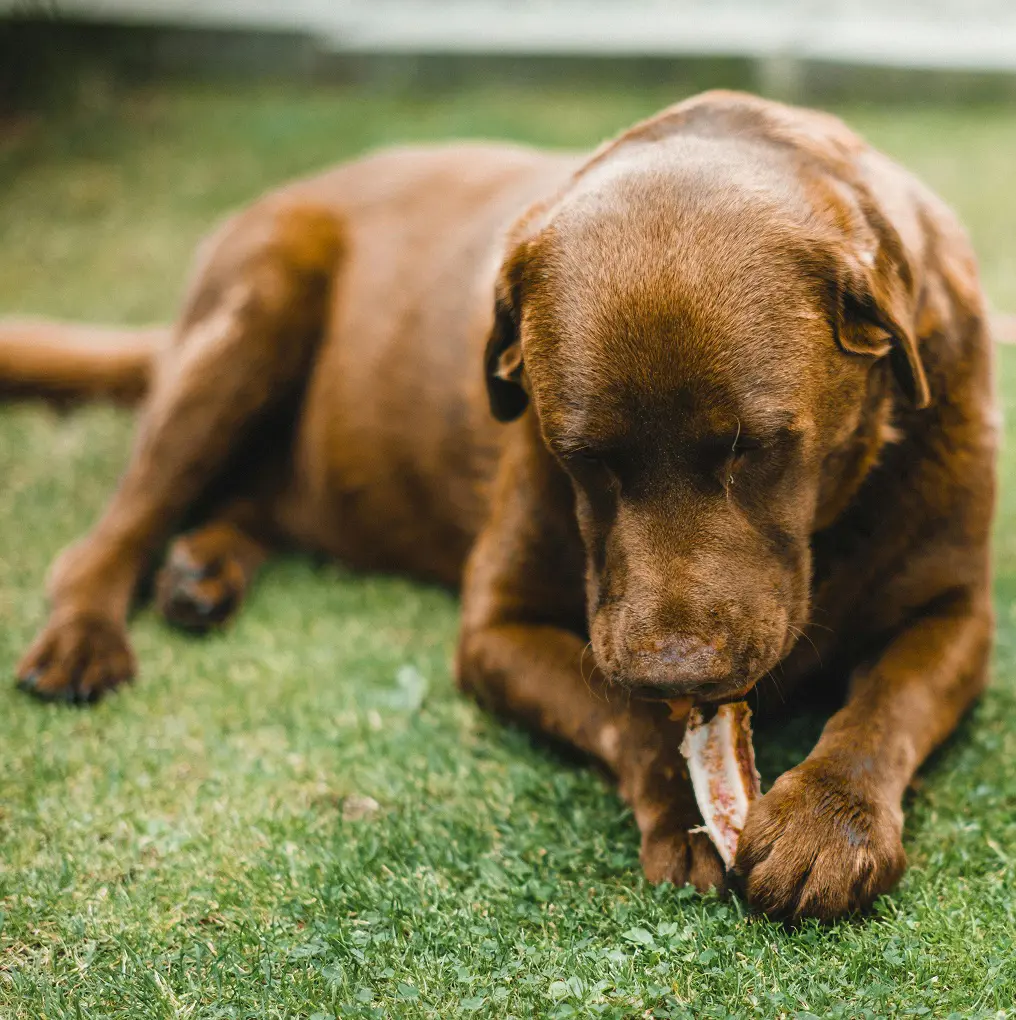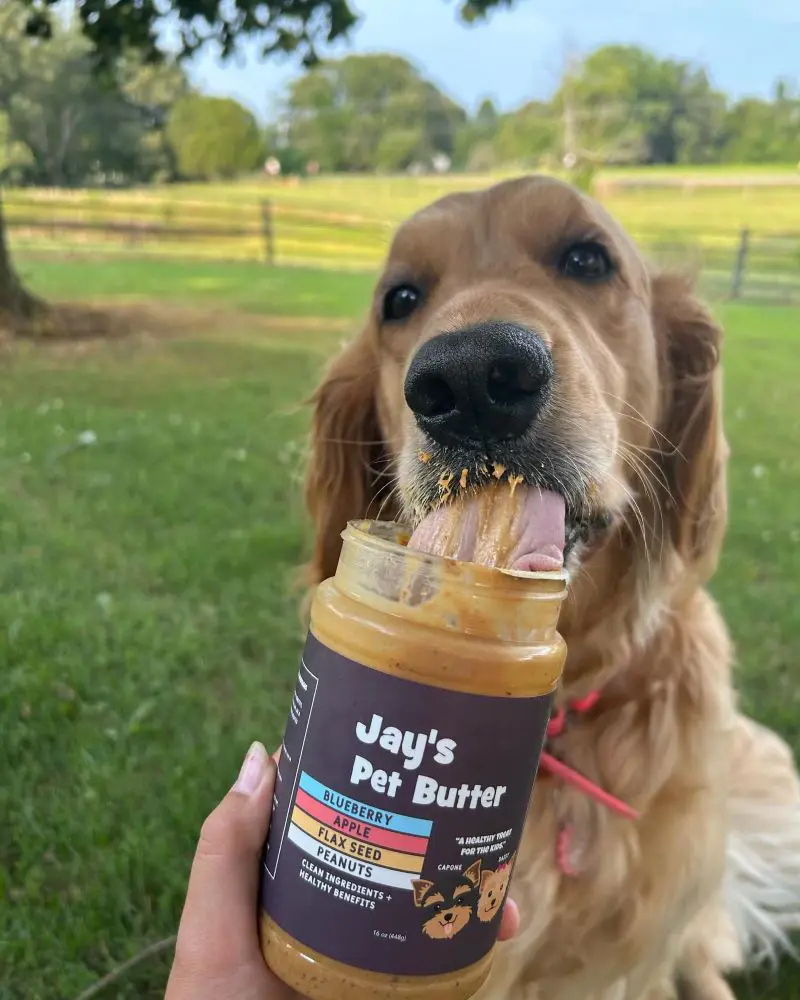Can Dogs Eat Bananas

Dogs and their dietary habits are a topic of interest for many pet owners, who often wonder about the suitability of various human foods for their canine companions. Banana is the most loved fruit by everyone and they will stun you as quite healthy and even as a snack for dogs.
When considering whether to offer this fruit to their pets, owners may have several questions in mind. Observing dogs' reactions to new foods can be both entertaining and informative, and bananas, with their sweet taste and soft texture, are no exception.
Benefits Of Bananas For Dogs
Rich in such critical nutrients as vitamin C, fiber, and potassium, the banana stands out as a treat, able to make significant input into the general health of your dogs while being very enjoyable and they are used for easy, delicious treats of people, but they can also offer many health benefits to our furry friends.
These nutrients do their part in various aspects of the condition of the health of the dog, ranging from improved digestion to a boosted immune system to the maintenance of proper muscle, and nerve function provided in moderation, bananas can be a healthy sweet in the diet of a dog.
1. High in Potassium
This will be a mineral that will help not just in maintaining proper fluid balance, muscle contractions, and nerve signals but also in having good blood pressure, hence general cardiovascular health, and those nutritional intakes rich in potassium may also help prevent hypertension and maintain proper functions of the kidneys.
2. Supports Heart Health
This food is friendly to their cardio, and their body becomes nutrient-dense, as foods make them have a lot of beneficial activity in the body, among others, such as cholesterol-reducing, anti-inflammatory, and enhancing blood flow. They are rich in omega-3 fatty acids, antioxidants, and fibers and can reduce the risks of heart illness and stroke in your dog.
3. Support Kidney Function
They take care of kidney function in dogs, thereby maintaining the correct amount of fluid and removing waste from the body, contain low levels of sodium and phosphorus but are rich in the nutrients necessary to avoid damage to the kidneys. This ensures that good kidney health is maintained so that problems related to kidney stones and chronic diseases of the kidneys are kept at bay.
4. Maintains Healthy Blood Pressure Levels
Nutritionally dense foods like bananas for healthy blood pressure in dogs primarily consist of a combination of three nutritional components: potassium, magnesium, and fiber. These three nutrients offset the amount of ingested sodium and enhance blood vessel function in return for regulating blood pressure. Feeding your dog a variety of food that is rich in these ingredients can, therefore, help avoid probable risks of hypertension and illnesses that lead to diseases.
5. Healthy Bones in Dogs
Bananas are needed to maintain bone health, rich in basic nutrients like calcium, vitamin D, and phosphorus, and are one of the most important nutrients in allowing the integrity and health of bones to protect the dog from conditions such as osteoporosis and fractures. A diet rich in bone health will ensure that the thickness and strength of bones are in their rightful places and this is an extremely important enabling factor for your dog's entire skeletal structure and locomotion.
6. Mood Enhancers and Stress Relievers
Bananas are normally omega-3 fatty acids, magnesium, and vitamins B6 and B12, and in this case, they work in their way to improve the functioning of neurotransmitters, control inflammation, and raise the general health of the brain with such food added to their diet, your dog's mood will improve a lot, and they will not be too anxious or stressed.
7. Brain Functioning
Vitamin B6 is involved in the formation and functioning of the brain and the number of antioxidants that bananas contain protects the brain from natural processes of oxidative stress. As a result, this fruit acts to improve memory and reduce age-related cognitive decline in dogs. They provide several nutrients that support the functioning of dogs' brains.
8. Keeps Them Hydrated
Considering the amount of water contained in bananas, they will keep your dog hydrated as they contain electrolytes that include potassium for balancing fluids in the body and preventing their ill-balanced tendencies that might lead to dehydration. Adding bananas to your dog's diet, of course, goes a long way, more so during the hot season and indeed after involving your dog in strenuous exercises.
Foreseeable Issues

Feeding your dog bananas may come with several potential risks and the amount of sugar contained in a banana is very high and this would be a concern to any dog, more so to those that either have diabetic conditions or are at risk due to obesity.
Too much sugar intake will lead to an increase in weight and, subsequently, the health hazards correlated with weight increase. Another reason is that the excess fiber in a banana is going to end up being irritating to some dogs' gastrointestinal systems if large portions of the fruit are taken.
This may lead to constipation or diarrhea in a dog that is not usually used to taking in foods that have high contents of fiber and the banana peel is more of a choking hazard, it is always hard on a dog's stomach so make sure you always peel it.
How To Feed Bananas To Your Dog?
Feeding bananas to dogs can be quite exciting and healthy, apart from just adding some variety to their diet and the best practices for its preparation and portioning must be followed to make the experience safe and pleasurable.
While giving your dog a banana may not be a problem, there are some critical steps necessary to ensure their safety, they are:
1. Choose Fresh, Ripe Bananas
Get a fresh, ripe banana that doesn't have bruises or mold and which is sweeter and healthier to be given as a yummy treat to your dog, they are always better than the bananas that haven't ripened yet.
2. Wash Them Well
Always make sure to clean the banana well before feeding for any pesticides or residues on the banana, this is always important in regard to your dogs' safety along with chemicals that are applied onto the skin and dangerous when ingested.
3. Remove The Peel
The peel is most likely to cause problems with digestion, and at times might even choke them, so make sure to always remove the peel from the banana and then give it to your dog.
4. Cut Into Small Pieces
This shall make it easier for your dog for him to chew and swallow without choking and small pieces are easily digested as well so remember to cut them up into small pieces.
5. Introduce Gradually
First, give your dog a small amount of banana so you can monitor his tolerance to the food, the observation will involve watching out for conditions resulting from gastrointestinal upset such as vomiting and diarrhea and if he can take it just fine, you increase his intake gradually.
6. Only As An Occasional Treat
Too much banana will then cause stomach problems, so it is better to have limited servings, a few small pieces a week generally is a safe amount. Treat them with a banana as an occasional treat rather than regularly in their diet.
7. Avoid Processed Banana Products
Never give your dog banana chips or flavored banana snacks or for that matter, any other form of processed banana products will contain added sugars and preservatives that are toxic to dogs.
You can add bananas to your dog's diet safely and pleasingly by the steps above.
Understanding Banana Allergies In Dogs

Although an allergy to bananas in dogs is fairly uncommon, you should be duly careful about the foods your dog is allowed to consume, food allergies are usually manifested through gastrointestinal upset and generally by episodes of vomiting and diarrhea. You can also find some physical signs and symptoms of allergies such as swelling in the paws, face, or joints.
Scratching, butt scooting, thinning of hair or baldness in certain areas, or more generalized bald patches are some of the dominant indications that a dog may have irritation or discomfort and other clinical signs very commonly point out that your dog is having some irritation or allergic reaction.
Some signs that the reaction might be more serious include very rapid swelling of their muzzle or eyes with associated shortness of breath and if you recognize the signs, for the sake of your dog, it is very important to get professional help as quickly as possible for your dog's comfort and safety.
How Many Bananas Can Dogs Eat?
A few small portions of banana a few times a week are fine and they can safely eat bananas in small portions. For example, For small dogs even less is advised, while larger dogs may take a little more but still, it is very much necessary to avoid overfeeding.
Small Breeds (e.g., Chihuahuas, Pugs)
Serving Size: 1 small piece or 1 to 2 pieces of banana.
Frequency: Once or twice a week.
Medium Breeds: Beagles, Cocker Spaniels
Serving size: 1-2 small pieces
Frequency: 2-3 times a week
Large Breeds: Labradors, German Shepherds
Serving size: 2-3 small pieces
Frequency: 3-4 times a week
Giant Breeds: Great Danes, St. Bernards
Serving size: 3-4 small pieces
Frequency: 2-3 times a week.
Alternative Treat for Dogs

These are safe alternative treats for your dogs that can replace bananas, each of these snacks offers unique health benefits and can be a delicious way to spoil your furry friend and they provide essential vitamins, minerals, and nutrients to keep your dog happy and healthy.
Apples
They are made up of a good mix of fiber and vitamin C and you have to remember to remove the core and seeds, for these may be poisonous and could cause choking in your dog always rinse and wash them before giving anything to your dog.
Carrots
Though crunchy, carrots are jam-packed with fiber and beta-carotene and much more than just crunchy and flavorful, this nutrient assists in sustaining vision health, scrubbing your dog's teeth and they are rich in fiber and can promote gut health in your dog too.
Green Beans
While very low in calories, green beans are very dense in nutrients, making them excellent deliverers of important vitamins and fiber and suit well as snacks for those tending to put pounds or just loving veggies. They have flavonoids and carotenoids which help in inflammation in the body.
Pumpkin
This is a good source of fiber, and pumpkin aids digestion, soothing stomach upset, and is excellent for the healthy and cheerful digestion of your dog. Pumpkins are made up of about 90% water, which can help them to be moist and provide a low-calorie option.
Sweet Potato
They are rich in vitamin A, C, and B6 chews that make a great, healthy treat light on your dog, they are exceptionally high in vitamin C and B6, which are important for the immune system and metabolism.
Peanut Butter
Full of protein and healthy fats, this is a safe kind of treat because they are rich in magnesium, help to regulate blood pressure, and are important for your dog's health. However, it also contains some saturated fats, so only a moderate amount of this should be given to your furry friend.
Blueberries
Rich in antioxidants, vitamins C and K. Small but mighty fruit, great as an occasional snack for dogs, and blueberries have antioxidants that give the fruit the deep blue color and protect it from both oxidative stress and inflammation, and this is a much-needed source of vitamin that they require.
Yogurt
Yogurt is a great source of calcium in dogs and acts as an excellent probiotic, too, you should take a plain yogurt variety with no added sugars and artificial flavors. A good source of protein and is an important food for the repair of muscles and the overall function of the body.
Oatmeal
This goes well with dogs, as it contains some fiber and helps in stomach ache–like issues and they should be given plain, with no added sweeteners. These are some great health snack choices and wonderful ways to give your dog a little extra love while at the same time helping him remain healthy.
Recent posts
Dog Foods
Why Bone Broth For Dogs Are Superfood
Bone broth is regarded as a superfood because of all of its health advantages. Packed with vital nutrients including minerals, collagen, and amino acids, it helps with digestion, maintains joint health, and encourages healthy skin and fur. Collagen i...
Homemade Dog Food Recipes That Are Easy And Nutritious
Creating homemade dog food is not just a mundane cooking ritual but an exciting culinary journey that adds a dash of love to your furry friend's bowl. Say goodbye to store-bought blandness and dive into the world of DIY dog food recipes that are deli...
20 Fruits That Will Make Your Dog Wag Their Tail
Many dogs can eat fruits in moderation, and in fact, fruits can be a healthy and fun treat for them. With its naturally sweet flavors, fruits make for a tasty alternative to traditional treats. So, incorporating a variety of fruits into a dog's diet ...
Can Dogs Eat Bones Safely?
Dogs can eat bones, but it must be done with caution. Raw bones, such as chicken, turkey, lamb, or beef, can be safe and beneficial, providing minerals and helping to clean teeth. However, cooked bones should be avoided as they can splinter, causing ...
Can Dogs Eat Broccoli?
Dogs can eat broccoli in moderation, making it a potential addition to their diet. This vegetable can be served to dogs either cooked or raw, depending on their preference. Incorporating a variety of vegetables into a dog's diet can provide them with...
Is Peanut Butter Good For Dogs?
Many peanut butter is indeed safe for most healthy dogs. It's packed with protein and healthy fats, making it nutritious. Whether you are a new or an experienced pet owner, you may be curious about the reliability of giving peanut butter to your dog....
